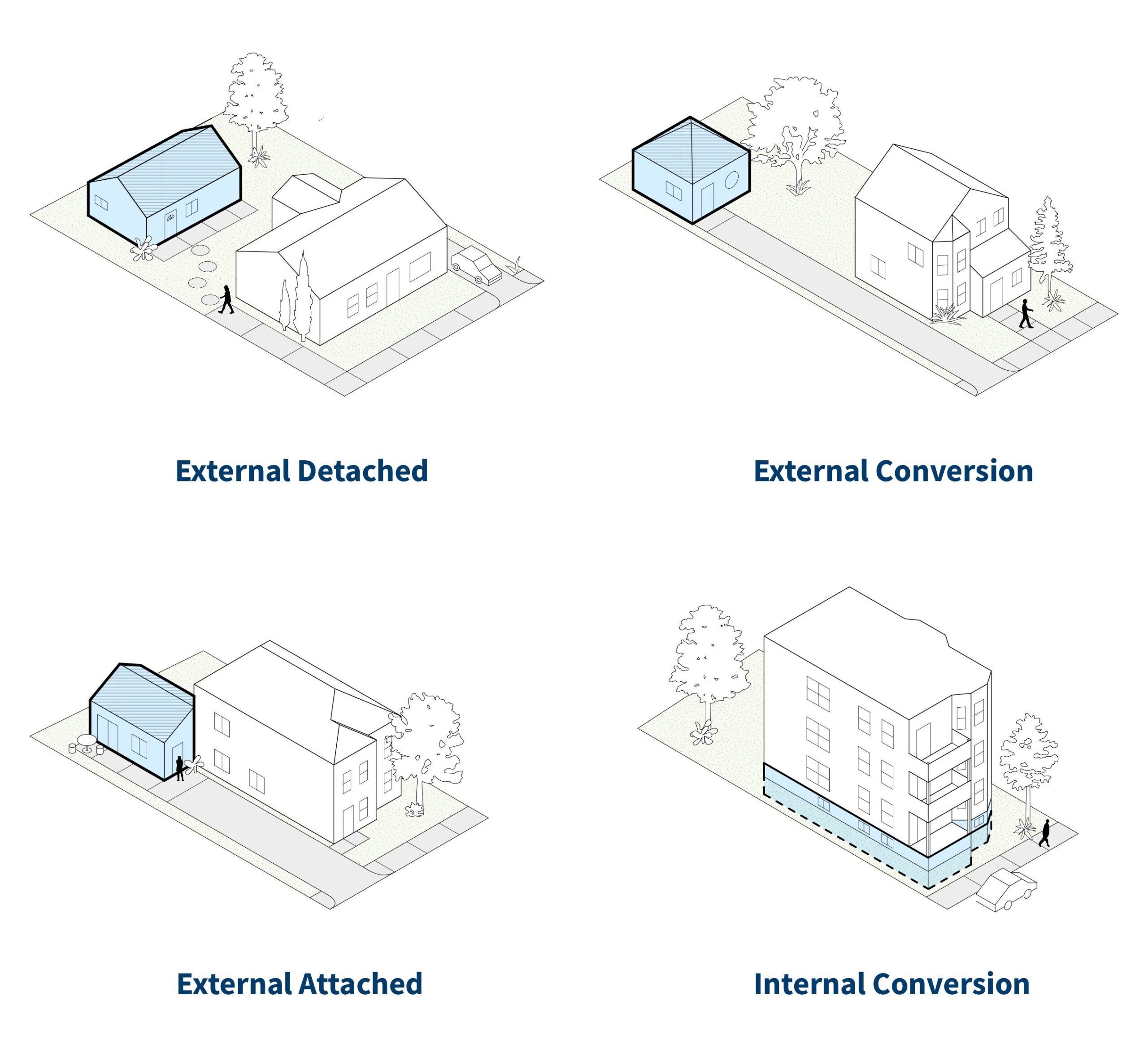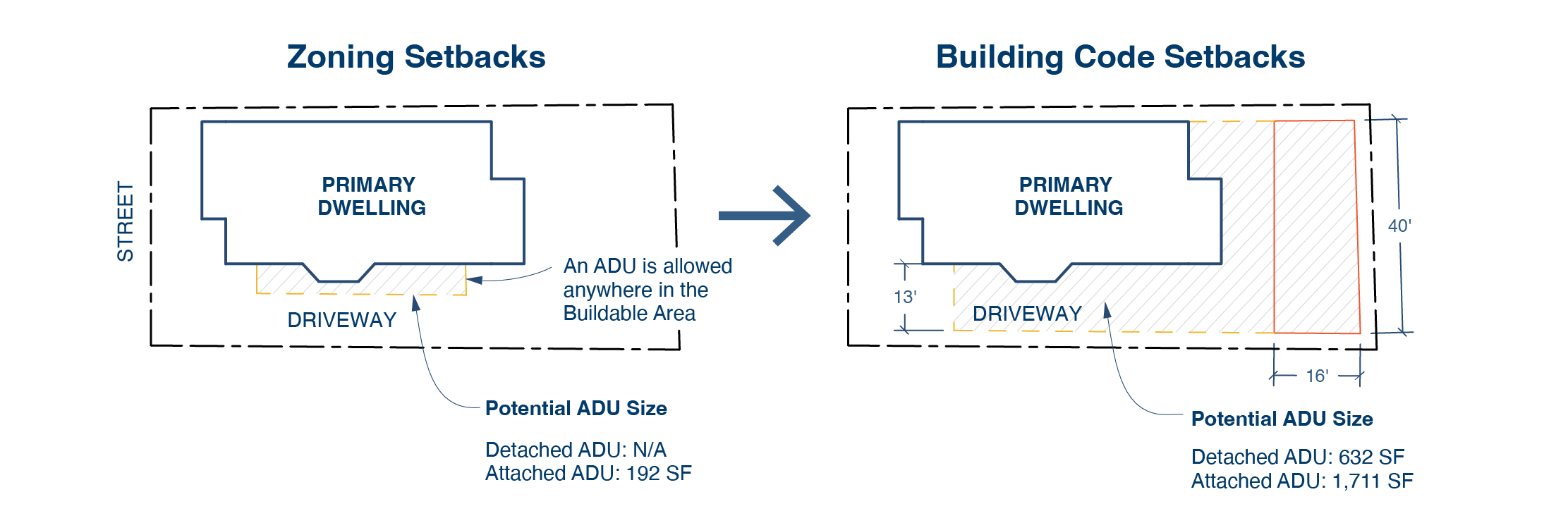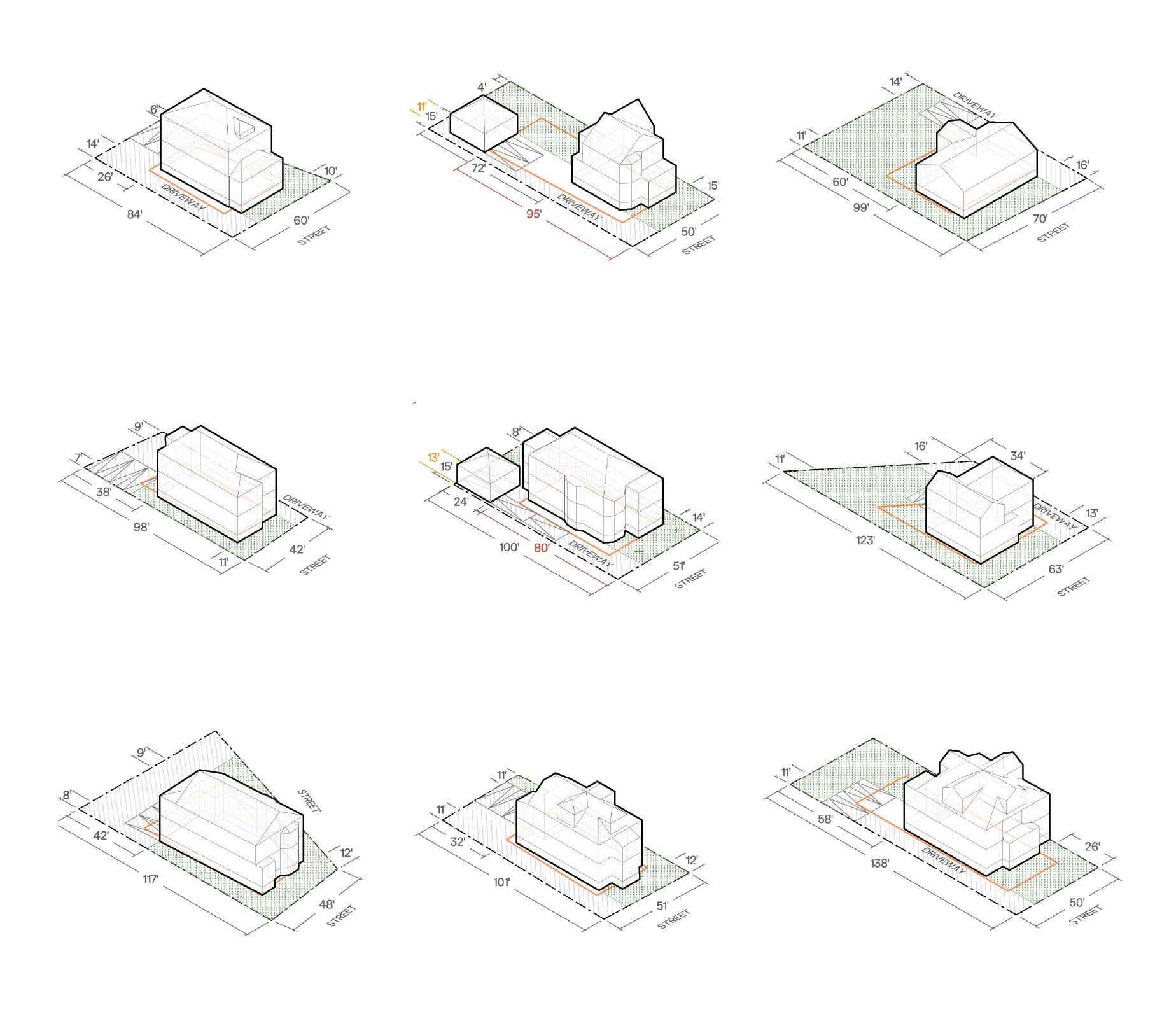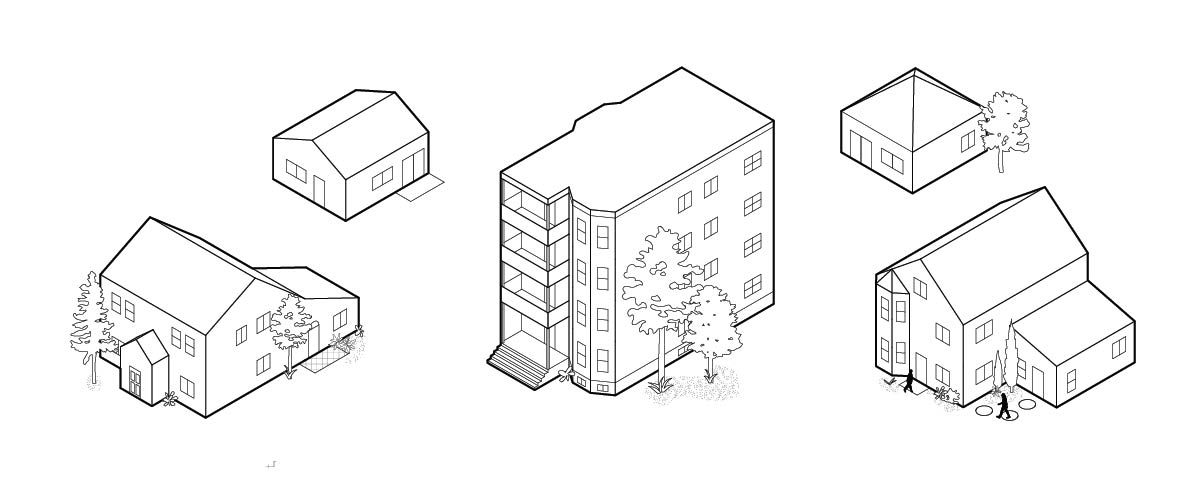
Recommending Zoning Changes to increase ADUs in Boston’s Mattapan Neighborhood
Working with Woodsong Associates, our team combined research, design, urban planning policy analysis, and knowledge of architectural constraints to identify potential changes to Boston’s zoning code that could encourage the development of ADUs and middle infill housing in the Mattapan neighborhood. We focused on four specific ADU typologies – External Detached, External Conversions, External Attached, and Internal Conversions.
We grounded our recommendations in Boston’s unique urban fabric, honored Mattapan’s neighborhood character, and challenged historically exclusionary zoning regulations. We combined spatial GIS analysis with qualitative observations of housing stock, and analysis of parcel data and plans. We analyzed the zoning designation, housing style, and number of units to identify patterns in land use and housing development.


Looking at a subset of lots that participated in City-led ADU pilot programs, we found that dwellings did not comply with restrictive limits on building envelope size, lot dimensions, and use regulations. Diving deeper, we created a nine-category typology matrix of all Mattapan residential 1F, 2F, and 3F lots based on the relationship between lot size (total square footage of lot area) and lot coverage (the total building and accessory structure footprint as a percentage of total lot area). We used this typology to fit-test potential ADUs and identify friction points with existing zoning code.
Using a case-study approach, we modeled nine Mattapan lots (one per typology) and visualized the buildable area that could potentially accommodate a standard ADU. We found that stringent frontage and Fire Code requirements made constructing an ADU infeasible on almost all lots. However, amendments to the zoning code could potentially increase the percentage of lots able to support ADU development.


To mitigate and address the identified barriers, we drew on a variety of case studies and best practices to put forth goals to: enable zoning that accommodates middle housing types; facilitate key standards for ADUs; and address existing non-conformities present in the current Zoning Code.
PROJECT PARTNERS:
CITY OF BOSTON, WOODSONG ASSOCIATES
